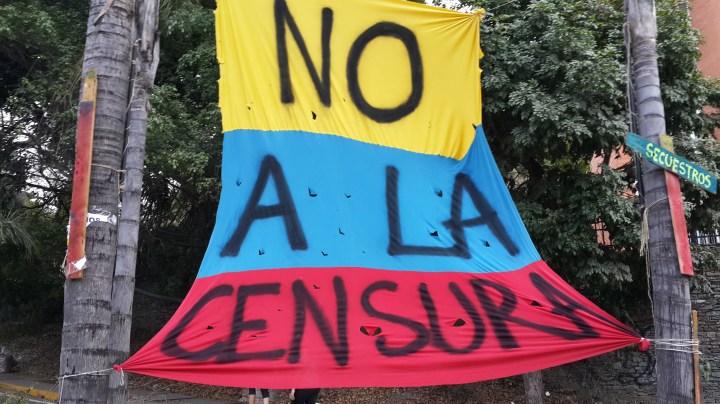Venezuela United to Honor Under-20 Team, But Anti-Maduro Sentiment Still Raged With Intensity

Photo is licensed under the CC BY 2.0 license.
Venezuela’s under-20 team may have lost in agonizing fashion to England in the World Cup final on Sunday, but they were received as conquering heroes back in their home country on Tuesday. The team was met with mobs of fans at the airport as they returned from South Korea, with their fellow countrymen and women chanting for La Vinotinto, and holding up signs that portrayed inspirational messages like “Welcome, Venezuelan warriors. Thank you for making us dream.”
From the airport, the team boarded buses towards the historic Estadio Olimpico, located in the heart of Caracas, where they were met with a standing room-only crowd of hinchas, superfans that may as well bleed the maroon color of wine. In a country that has been ravaged by opposing political factions and calls for government reform, it was a moment of unity that had been lacking from the South American nation for years.
Of course, that all changed once Venezuela manager Rafael Dudamel stepped onto the field. As reported by El Comercio, Dudamel was met with chants of “it’s going to fall, it’s going to fall, this government is going to fall” and “Maduro, get out,” in reference to President Nicolás Maduro.
You see, the outspoken vinotinto manager had used his worldwide platform at the World Cup to plead with the government–despite FVF pleas that he not politicize the moment–asking them to put away their weapons in response to the protests that have been raging in Venezuela over the last few months. Aside from Dudamel, other Venezuelan sports figures like Miguel Cabrera, Francisco Cervelli, and Salvador Perez have spoken out against the government repression and violence.
At Tuesdays rally, Dudamel met the anti-government chants with a reserved attitude, trying to focus on the unprecedented success of his young charges. “I want us to continue enjoying this soccer moment,” he said to the 23-thousand strong crowd. “Let no one rob us of this. The future is vinotinto, and the future is ours.”
For his part, Maduro went on government television, separate from these celebrations, and claimed that the government’s support of the team was key for Venezuela to “have a name” in global sports, “although some ungrateful people do not recognize that.”
Despite this confrontational stance, the atmosphere at the Estadio Olimpico was said to be passionate and joyful. The team and its powerful showing in South Korea was seen as a rebuttal towards the state of things in Venezuela, which recently saw its bloodiest months since Maduro came to power in 2013.
Truly, for a couple of weeks, the sporting future of the nation united enemies and friends alike, giving hope for the beleaguered Venezuelan soccer institution that they might win their first-ever international trophy. It was not meant to be, but it didn’t hurt to dream, especially for a country in dire need of heroes right now.